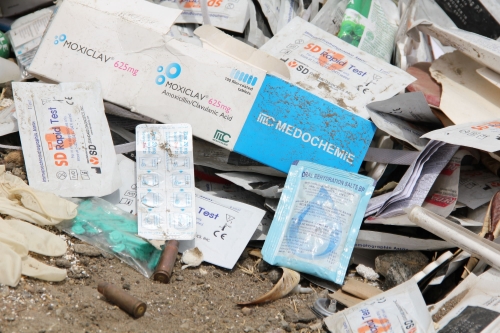Kenya’s national elections are more than a year away, but political tensions are already rising. Starting in late April, the main political opposition group began organizing a near-weekly protest against the commission charged with organizing the vote. It has accused the commission’s members of being in the pocket of President Uhuru Kenyatta, who is set to stand for a second term. The recent demonstrations have consistently been met with widespread police brutality; at least three protesters were killed during the latest incident late last month.
Following those deaths, Kenyatta’s government and the opposition have started negotiations, and future demonstrations have been temporarily suspended. Even if they reach a compromise on this issue, though, there is every reason to suspect it is only the first in what promises to be a year of political clashes. Whether those battles tip over into further physical violence is up to the country’s leaders. Read more.



